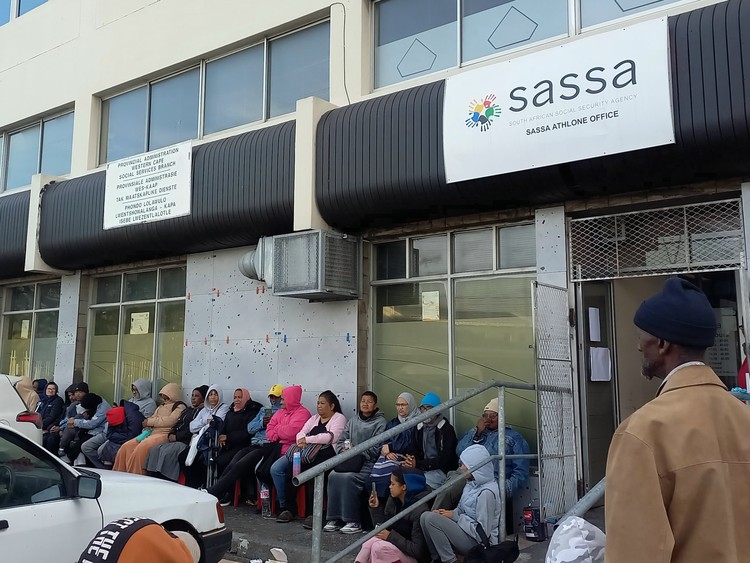
14 July 2025
The South African Social Security Agency (SASSA) has promised to extend operating hours and employ more staff as thousands of grant beneficiaries are called in for in-person reviews. Archive photo: Marecia Damons
The South African Social Security Agency (SASSA) has promised to extend operating hours and employ more staff as thousands of grant beneficiaries are called in for in-person reviews.
This intervention comes amid mounting frustration among grant recipients who have not been paid yet after being flagged for possibly having undisclosed income.
During a briefing on Monday, SASSA Chief Executive Officer Themba Matlou said that the current review process was part of its effort to verify eligibility and curb fraud in the social grant system. The crackdown follows new conditions introduced by the National Treasury for the management of social grants, which include monthly income checks using banks and government databases.
The reviews target beneficiaries of all grant types who may no longer qualify because of changes in their financial or personal circumstances. In May, SASSA said that about 210,000 beneficiaries had been flagged after data from credit bureaus showed undisclosed income.
Matlou stressed that SASSA had not suspended any grants. But he warned that should beneficiaries “fail to comply with this process” they “risk having their grants suspended”.
He added that if a beneficiary did not come forward after three months from the date they were notified of the review, their grant may lapse. “It could be that some of them are either potential fraud cases or really don’t deserve to get it,” he said.
To date, more than 140,000 SMS notifications have been sent out, but many people say they haven’t received them because they changed their contact details and failed to inform SASSA, said Matlou.
SASSA executive manager for grant operations, Brenton van Vrede, said the agency aims to complete about 300,000 reviews this year. “We do reviews every single year. This isn’t a new thing,” he said.
Matlou announced that SASSA has introduced a “fourth payment date” to its payment cycle. SASSA currently pays social grants over three days.
“Beneficiaries targeted for a review are paid on the fourth day. This will ensure that they receive their payment after the necessary review, without prejudicing the general payment cycle for others.”
Beneficiaries who continue to receive payments between the second and fifth of each month do not need to take any action unless notified, Matlou said.
Van Vrede clarified that beneficiaries paid on the fourth payment date were not suspended. “It’s just an amendment to the payment schedule. You’re still getting paid your grant in the month it is due … you’ll just be paid a few days later.”
The fourth payment date was introduced partly to avoid the delays and stress caused when beneficiaries only find out that they are being reviewed after their grant has already been suspended. “What we’re trying to do with the fourth payment cycle is send an alert or signal that there’s something wrong with your grant, and you should contact the SASSA office. We hoped that would bring in more numbers earlier and avoid creating a bottleneck in the system. We’re still evaluating to see if it’s working,” he said.
SASSA also plans to introduce self-service options at certain offices. “There’s also self-verification they can do with their cellphones where they take their picture and have their ID matched against Home Affairs.”
The Universal Basic Income Coalition’s Kelle Howston said that she welcomes SASSA’s plan to introduce self-service kiosks but worries that “barriers and obstacles in SASSA’s system” will prevent people from swiftly verifying their identity and eligibility.
This includes the fact that biometric identification only functions for people with Smart ID cards.
“We take our responsibility seriously to serve the most vulnerable in our society and will work harder to ensure that no beneficiary is left confused or disadvantaged,” Matlou added.